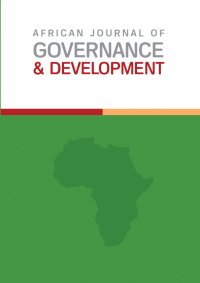Potable Water Security in Rural South Africa: A Case Study of Vhembe District
Main Article Content
Abstract
South Africa is a semi-arid country and has limited water resources. The provision of potable water to rural communities remains a challenge. The current study assesses the provision of water services and community’s perceptions of water supply amid the
coronavirus pandemic in Vhembe District Municipality (VDM). A sample of 448 households was selected from 14 villages. Findings revealed that communities rely on a variety of water sources with the main water source being boreholes. Households spend a significant amount of time daily to fetch water. Of the 38 boreholes in the villages, only 28% are functional and water tankers are used in times of emergency, most of which are also unreliable. The respondents were not satisfied with the quantity, quality of the water,
distance travelled and reliability of the service. Water provision in VDM remains a challenge and thus needs immediate intervention particularly in the light of curbing the spread of the coronavirus.
Article Details

This work is licensed under a Creative Commons Attribution-NonCommercial-NoDerivatives 4.0 International License.
